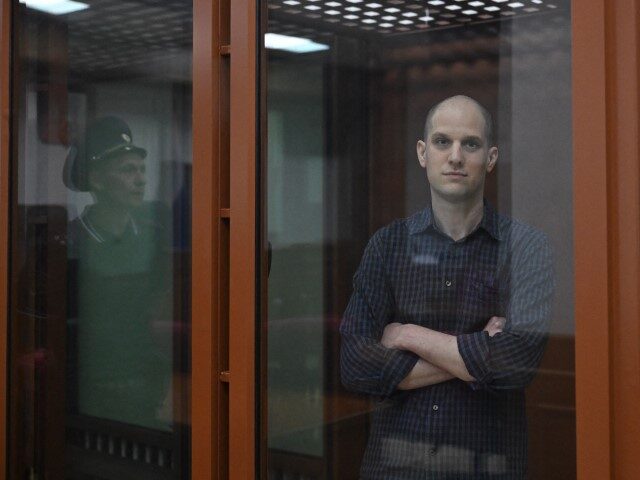Russian Foreign Minister Sergey Lavrov on Wednesday blamed American media for the delay in negotiations to swap captive American journalist Evan Gershkovich for Russian prisoners in the United States.
Lavrov claimed at a United Nations news conference that Russia has “irrefutable evidence” proving that Gershkovich was engaged in “some espionage activities” when he was arrested in Yekaterinburg in March 2023.
The Russians have not made any of this evidence public. The U.S. government and Gershkovich’s employers at the Wall Street Journal adamantly insist Gershkovich is not guilty of any crime and the Russian government entirely fabricated the case against him as an excuse to take him hostage.
Lavrov defended the arrest and prosecution of Gershkovich by claiming the United States and United Kingdom have a “tradition” of using journalists for “intelligence-gathering purposes.”
“I would like to assure you that, just as much as you do, we are in favor of journalism and freedom of speech,” the Russian foreign minister bizarrely insisted to the gathered reporters.
This assertion would be a tough sell to press freedom advocates even if the abduction of Gershkovich was left out of the discussion. According to Reporters Without Borders, only 18 countries in the world are more inhospitable to journalism than Russia.
Lavrov said negotiations with the United States for a prisoner swap are still “ongoing,” but they have been hindered by the attention American journalists are paying to the case.
“Everyone knows that this topic needs to be discussed calmly, confidentially even though it is constantly introduced into the public space by American journalists, which is not helping. But the contacts are ongoing,” he said.
In truth, longtime observers of Russia’s tactics say the regime is unlikely to trade Gershkovich until he has been convicted and sentenced. The dubious espionage charges leveled against him carry a penalty of up to 20 years in prison.
The odds of a conviction are very high, as less than one percent of defendants in Russian courts are acquitted.
The Gershkovich trial accelerated without explanation this week. His second court appearance was bumped up from August 13 to Thursday, July 18, and the prosecution said it would be ready for closing arguments on Friday. Russian espionage trials usually take at least four months, and can last for more than a year.

COMMENTS
Please let us know if you're having issues with commenting.